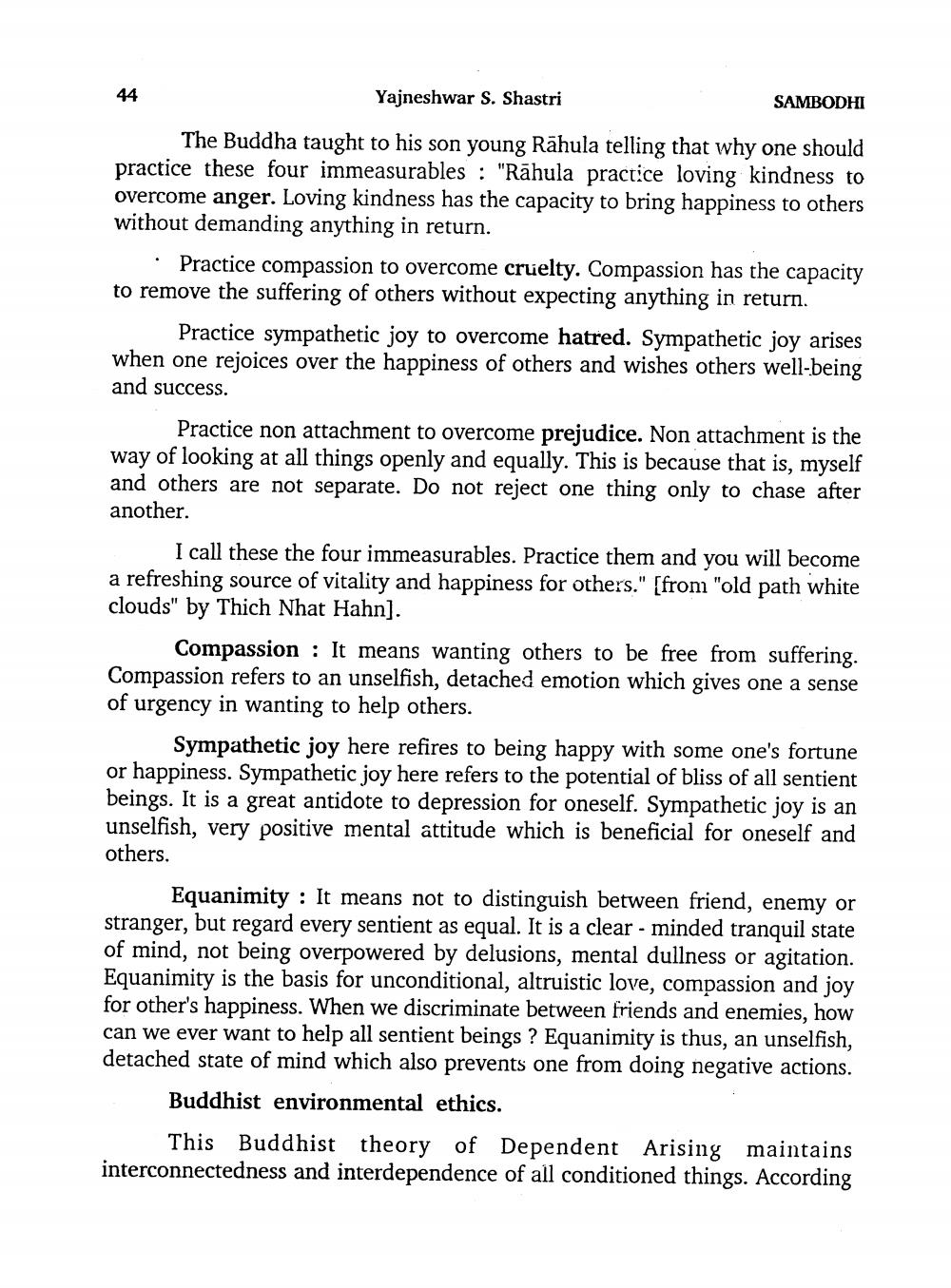________________
Yajneshwar S. Shastri
SAMBODHI
The Buddha taught to his son young Rāhula telling that why one should practice these four immeasurables : "Rāhula practice loving kindness to overcome anger. Loving kindness has the capacity to bring happiness to others without demanding anything in return.
. Practice compassion to overcome cruelty. Compassion has the capacity to remove the suffering of others without expecting anything in return.
Practice sympathetic joy to overcome hatred. Sympathetic joy arises when one rejoices over the happiness of others and wishes others well-being and success.
Practice non attachment to overcome prejudice. Non attachment is the way of looking at all things openly and equally. This is because that is, myself and others are not separate. Do not reject one thing only to chase after another.
I call these the four immeasurables. Practice them and you will become a refreshing source of vitality and happiness for others." [from "old path white clouds" by Thich Nhat Hahn).
Compassion : It means wanting others to be free from suffering. Compassion refers to an unselfish, detached emotion which gives one a sense of urgency in wanting to help others.
Sympathetic joy here refires to being happy with some one's fortune or happiness. Sympathetic joy here refers to the potential of bliss of all sentient beings. It is a great antidote to depression for oneself. Sympathetic joy is an unselfish, very positive mental attitude which is beneficial for oneself and others.
Equanimity : It means not to distinguish between friend, enemy or stranger, but regard every sentient as equal. It is a clear - minded tranquil state of mind, not being overpowered by delusions, mental dullness or agitation. Equanimity is the basis for unconditional, altruistic love, compassion and jo for other's happiness. When we discriminate between friends and enemies, how can we ever want to help all sentient beings ? Equanimity is thus, an unselfish, detached state of mind which also prevents one from doing negative actions.
Buddhist environmental ethics.
This Buddhist theory of Dependent Arising maintains interconnectedness and interdependence of all conditioned things. According




